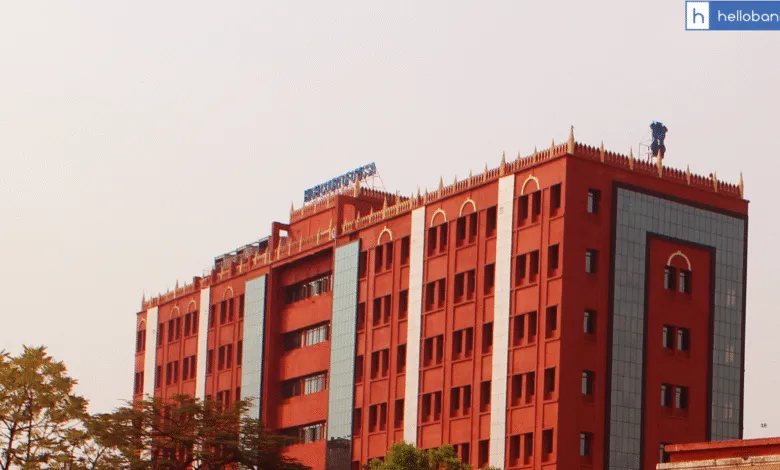Orissa High Court: Compassionate Appointment Cannot Be Denied on Hyper-Technical Medical Grounds

A Division bench of the Orissa High Court comprising Justice S.K. Sahoo and Justice S. S. Mishra held that when medical records from a premier government hospital clearly establish that the deceased employee suffered from cardiac and kidney ailments and died due to cardiac arrest, such death falls within the diseases specified under the Compassionate Appointment Scheme and the company cannot deny it on basis of hyper technicalities of terminology.
Background Facts
The father of the applicant was working in the Raw Material Division, Bolani Ore Mines of Steel Authority of India Limited. He died on 07.11.2010 due to PSVT (Cardiac arrest). The mother of the applicant submitted an application on 05.01.2011 seeking compassionate appointment for her son under the Rehabilitation Assistance Scheme as per the circular dated 26.08.2010. But no response was received. Therefore, she again filed an application on 28.02.2011 along with documents. Later she sent a reminder on 15.04.2013.
There was no action taken by the General Manager (HR), Steel Authority of India Ltd (Petitioners). Therefore, the applicant approached the High Court in O.J.C. No.15028 of 2013. Later it was transferred to the Central Administrative Tribunal, Cuttack Bench. The Steel Authority opposed the claim on the ground that the cause of death was Hollow Viscus Perforation disease, which was not covered under the scheme. Under the scheme, only kidney failure, heart stroke and cancer were specified.
The applicant relied on the medical documents from SCB Medical College, Cuttack. It was contended that his father was suffering from cardiac problems and kidney disease, and ultimately died of cardiac arrest. It was held by the Tribunal that death caused by cardiac arrest resulting from heart disease satisfies the eligibility criteria under the scheme. It was observed that the Steel Authority acted illegally and hyper-technically by rejecting the claim. It was directed by the Tribunal to the Steel Authority to consider the applicant’s case for compassionate appointment afresh and issue a reasoned order within one month.
Hence, the petitioners constituted an Expert Committee of company doctors in 2023. It reported that the deceased employee had not died of any of the specified diseases. Therefore, the petitioners again rejected the claim on 09.02.2023. The applicant challenged the rejection in O.A. No.154 of 2023. The Tribunal quashed the order and directed the petitioners to grant compassionate appointment within 60 days.
Aggrieved by the same, the petitioners filed the writ petition.
It was submitted by the petitioner Steel Authority that the order dated 13.01.2023 passed by the Tribunal directing the petitioners to consider the case of the applicant for grant of compassionate appointment was not a speaking and reasoned order. It was further submitted that as there was no prohibition for constituting the Expert Committee, the petitioners constituted the Committee and it held that the deceased employee had not died due to any of the diseases such as failure of Kidneys, Heart Stroke or Cancer as stipulated in the Scheme for Compassionate Appointment vide Circular dt.26.08.2010, Hence, the claim of the applicant for employment on compassionate ground did not fall under the purview of the Circular and extant rules of the Company.
On the other hand, it was submitted by the applicant that the medical records from S.C.B. Medical College clearly showed that his father’s death was caused by heart and kidney ailments, which were expressly covered under the scheme. Therefore rejection of his claim was illegal and arbitrary.
Findings of the Court
It was observed by the court that the Tribunal had rightly taken into account its earlier order dated 13.01.2023, wherein the treatment letter of S.C.B. Medical College recorded that the deceased employee was suffering from cardiac problems (PSVT) and kidney disease and had died due to cardiac arrest. It was further observed that the scheme dated 26.08.2010 covered deaths arising from heart stroke and kidney failure, and the deceased employee was undergoing treatment for both heart and kidney ailments at the time of his death. It was noted by the court that the Tribunal had correctly held that the petitioners should not have gone into hyper-technicalities of medical terminology.
It was further noted by the court that when the doctors of S.C.B. Medical College have given the cause of death of the applicant’s father to be “Cardiac Arrest”, it was not proper on the part of the petitioners to constitute a team of doctors and to give a report negativing the report of the doctors just to deny the relief sought for by the applicant.
It was held by the court that the rejection order passed by the petitioners is illegal, arbitrary and suffers from non-application of mind. Accordingly, it was set aside. It was further held by the court that the Tribunal was justified in setting aside the rejection order and directing the petitioners to grant appointment to the applicant under the compassionate appointment scheme.
It was concluded by the court that denial of compassionate appointment on hyper-technical medical terminology is arbitrary when credible hospital records proved the employee’s death due to cardiac and kidney ailments was covered under the scheme.
With the aforesaid observations, the writ petition was dismissed.
Download Court Order PDF (This PDF is available for Premium Users Only. Click here to join premium)
